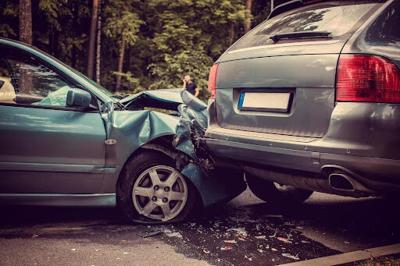
Oakland is a city in San Francisco, United States. Here, car accident cases are common. One of the most important things to do after a bad car crash is to figure out how much money you can get to cover your injuries.
Mostly, victims have to deal with medical expenditures, lost wages, and agony that lasts for a long time and makes it hard to live normally. Fortunately, the Oakland car accident lawyers at Jacoby & Meyers help clients get through this complicated process and make sure that all possible damages are taken into account when making a claim.
Types of Damages in Car Accident Cases
When figuring out how much money to pay for damages, courts and insurance companies put them into two groups:
Economic Damages
These are losses that can be seen and measured, and they have definite dollar amounts. Some examples are:
- Costs of medical treatment include hospital stays, operations, medications, rehabilitation, and long-term care.
- Damage to property: fixing or replacing your car and any other personal property.
- Lost wages: money you lost while recovering and money you will not make again if your injuries keep you from going back to the same job.
Non-Economic Damages
These address the effects of an accident that cannot be seen but are quite real, including:
- Agony and suffering: the accident produced bodily agony and emotional misery
- Loss of enjoyment of life: not being able to do things you like, spend time with your family, or have other experiences in life.
- Loss of consortium: how the injury affects interactions with your spouse and family.
Sometimes, punitive damages may also apply. These are not linked to your direct losses; rather, they are given to punish behavior that is very risky, such as driving intoxicated.
Things That Affect the Calculation
There are a number of things that affect how much money you will get in the end:
- How bad are the injuries? More serious injuries usually mean higher medical bills, longer healing times, and more pain and suffering.
- Impact on your ability to generate money in the future: If your injuries keep you from going back to work or make it harder for you to make money in the future, this can greatly increase damages.
- Comparative negligence: Meaning that in California, the amount of damages you get may be lessened by how much you were at fault. For instance, if you are found to be 20% at fault for the crash, your compensation will be cut by that much.
- Limits on insurance policies: The at-fault driver's insurance may limit how much you may get back at first, but there may be other legal options available.
Proving Your Damages
To get the most out of your recovery, you need strong proof. Therefore, you need:
- Doctor's notes and medical records
- Bills and receipts for repairs and treatments.
- Pay stubs or statements from your employer to show missed wages.
- Pictures, witness statements, and expert opinions (such as accident reconstruction or job experts)
Why it is important to have a lawyer
Insurance adjusters try to lower settlements by undervaluing both economic and non-economic damages. Attorneys who are good at what they do can properly evaluate your claim, acquire evidence to back it up, and negotiate hard on your behalf.
When you work with professional lawyers, you can be confident that all types of losses are taken into account and that your rights are adequately safeguarded during the claims procedure.
If you have been hurt in a crash, it is important to know all the damages you might be able to get. You can get appropriate compensation that shows how your accident affected you by carefully thinking about your economic and non-economic losses, gathering evidence, and working with a lawyer you trust.





(0) comments
We welcome your comments
Log In
Post a comment as Guest
Keep it Clean. Please avoid obscene, vulgar, lewd, racist or sexually-oriented language.
PLEASE TURN OFF YOUR CAPS LOCK.
Don't Threaten. Threats of harming another person will not be tolerated.
Be Truthful. Don't knowingly lie about anyone or anything.
Be Nice. No racism, sexism or any sort of -ism that is degrading to another person.
Be Proactive. Use the 'Report' link on each comment to let us know of abusive posts.
Share with Us. We'd love to hear eyewitness accounts, the history behind an article.